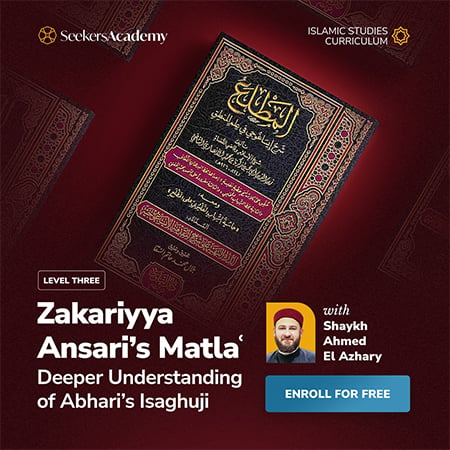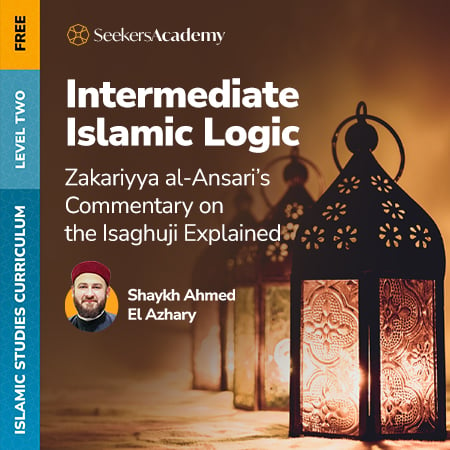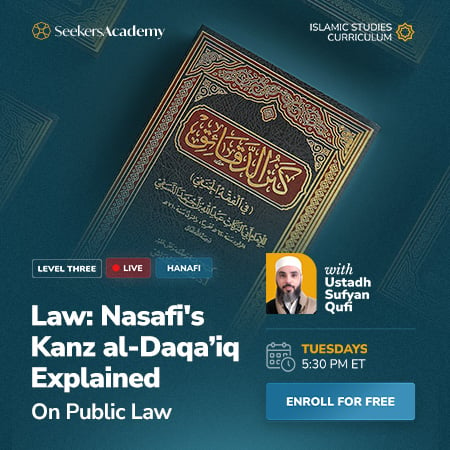
This is a Level Three course in the Islamic Studies Curriculum. It covers an intermediate commentary on Imam Athir al-Din Abhari’s fundamental logic primer, Isaghuji. It provides students the opportunity to expand their study of Isaghuji and prepares them for studying higher-level texts, like Tahdhib by Taftazni and Shamsiyya by Katibi.
In this course, Shaykh Ahmed El Azhary, takes students through a word-by-word explanation of Matla‘ by Shaykh al-Islam Zakariyya al-Ansari, which is widely taught in Egypt and Syria.
- Teacher: Shaykh Ahmed El Azhary
The Matla‘ is an intermediate commentary on Imam Athir al-Din al-Abhari’s Isaghuji that is widely taught in Egypt and Syria. Since it was written, it attracted the attention of scholars and teachers and elicited a number of super-commentaries. Mallawi, Qalyubi, ‘Attar and ‘Ilish were among the key figures and specialists who wrote super-commentaries on Matla‘.
He also introduced topics – like modal propositions – that were not mentioned by Abhari in his primer to prepare students for studying them at higher-level texts, like Tahdhib by Taftazni and Shamsiyya by Katibi.
- This course is for adults.
- It is particularly beneficial for students of the Sacred Sciences, especially students who are interested in the rational sciences.
- It is a Level Three course. In order to successfully complete this course, students should take Abhari’s Isaghuji: An Introduction to Traditional Logic.
- Have a comprehensive and expanded understanding of the principles and rules of Logic as discussed in Abhari’s Isaghuji.
- Analyze logical arguments and evaluate their validity, using the techniques and principles of Logic.
- Apply the principles of Logic to Islamic disciplines, such as Kalam, Usul al-Fiqh, and Fiqh; and enhance their understanding of these disciplines.
- Develop critical thinking skills and improve their ability to reason and evaluate arguments.
- Expand their knowledge of the Islamic intellectual tradition and explore the development of Logic in the Islamic world.


